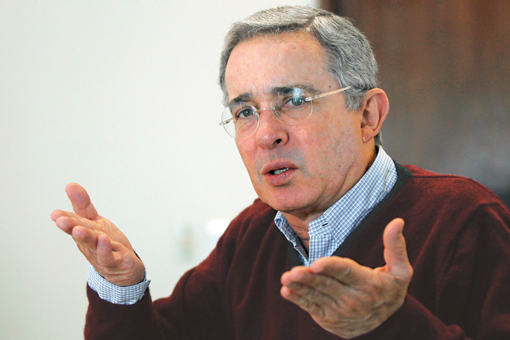On May 25, 32 million Colombians will vote in one of the most important presidential elections in the nation’s recent history—an election that will turn on the issue that remains Colombia’s greatest challenge: putting an end to the armed conflict.
But the significance of this issue contrasts with the apathetic response of the majority of the population. In the March 9 legislative elections earlier this year, 55 percent of the electorate opted to stay away from the voting booth, a slight increase from the last electoral cycle, four years ago.
Still, the promise of peace continues to dominate the battle for the presidency, a perennial feature in Colombian election campaigns. During the 1998 elections, when a photo of conservative candidate Andrés Pastrana with Manuel Marulanda, then commander of the Fuerzas Armadas Revolucionarias de Colombia (Revolutionary Armed Forces of Colombia—FARC), appeared, it gave Colombians hope that peace was finally within reach. It was a key factor in Pastrana’s victory that year.
Four years later, the failure of negotiations with the FARC led to the victory of Álvaro Uribe Vélez from the center-right Primero Colombia (Colombia First) alliance. After what many voters had come to believe was the lack of genuine commitment of the FARC to peace, Uribe convinced the electorate that only its military defeat would bring the long-sought end to hostilities.
Uribe’s successor, current president Juan Manuel Santos of the center-right Partido Social de Unidad Nacional (Social Party of National Unity—Party of the U), came out on top in 2010, riding the wave of popularity left by Uribe’s military campaign against the FARC. Now, Santos’ decision to invite the guerrilla group back to the negotiation table in Cuba in November 2012 has become the crucial issue in the electoral battle of 2014.
Santos must debate the question in the face of an emerging opposition led by Uribe, his one-time political mentor who had backed his run for the presidency. This will be the first time a president has ever sought re-election in the middle of peace talks with a guerrilla group—a process he can neither predict nor control, and that so far has been viewed with suspicion and pessimism by the Colombian electorate…





